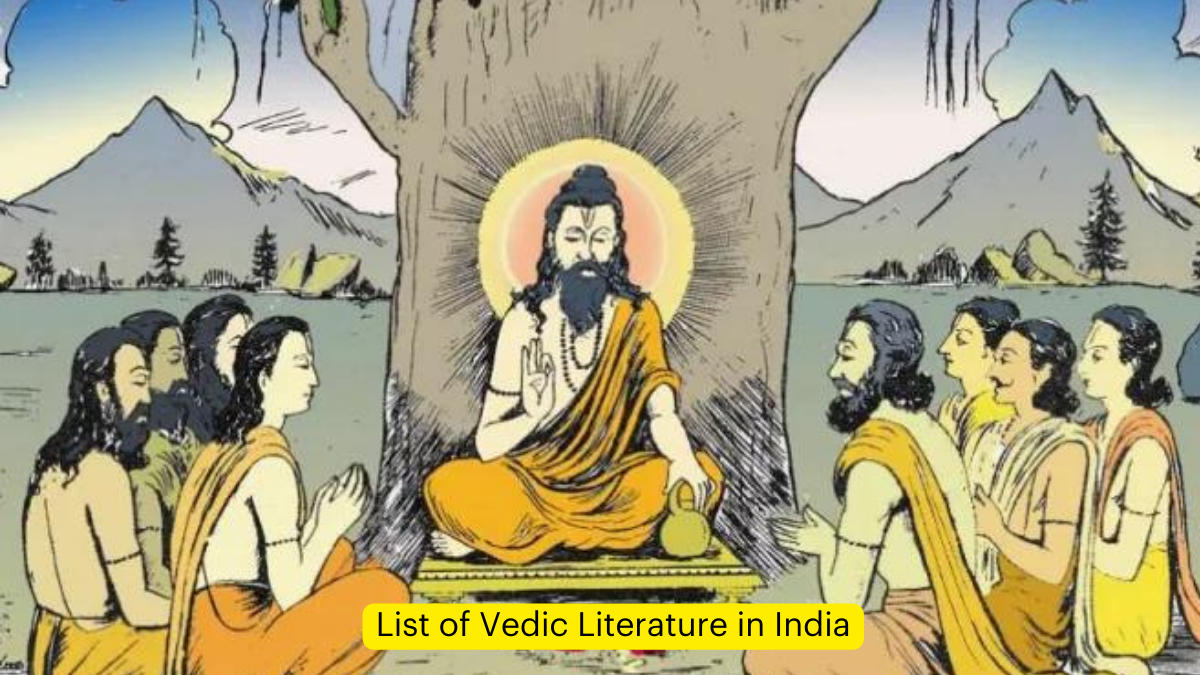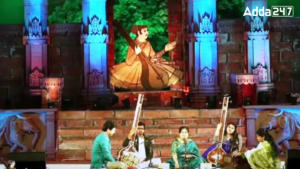What is Vedic Literature?
Vedic literature is a collection of ancient Indian texts that form the foundation of Hindu philosophy and culture. The word “Veda” means “knowledge” in Sanskrit. These texts were passed down orally for generations before being written down, and they’re often called “shruti,” which means “that which is heard.”
Why is Vedic Literature Important?
Vedic literature provides valuable insights into the life, beliefs, and practices of ancient Aryans. It’s not just important for understanding history, but also for its continued influence on Indian culture, philosophy, and spirituality. Many competitive exams in India, like UPSC, SSC, and state services, often include questions about Vedic literature.
The Four Vedas: The Core of Vedic Literature
1. Rigveda: The Book of Hymns
- Compiled around 1500-1000 BC
- Contains hymns praising various gods
- Divided into volumes called Mandals
- Mandal III includes the famous Gayatri Mantra
- Mandal IX discusses the varna system
- Experts in Rigveda were called hotra or hotri
2. Samaveda: The Book of Songs
- Collection of songs, mostly from Rigveda hymns
- Experts were called Udgatri
- Laid the foundation for Indian music
3. Yajurveda: The Book of Rituals
- Contains sacrificial formulae
- Describes rituals for reciting mantras
- Experts were called Adhvaryu
- Divided into Krishna Yajurveda and Shukla Yajurveda
4. Atharvaveda: The Book of Spells
- Collection of charms and spells
- Contains hymns for healing diseases
- Basis for Ayurveda, the Indian medical science
Beyond the Vedas: Other Important Vedic Texts
The Brahmanas: Explaining the Rituals
- Provide details about Vedic hymns and their applications
- Each Veda has specific Brahmanas, like Aitareya for Rigveda and Shatpatha for Yajurveda
The Aranyakas: Forest Texts
- Meant for hermits and students
- Bridge between Vedas and Upanishads
- Shift focus from material to spiritual aspects
The Upanishads: Philosophical Teachings
- Also called Vedanta (end of Vedas)
- Focus on philosophy and metaphysics
- Discuss concepts like soul, rebirth, and karma
- Famous Upanishads include Chhandogya and Katha
- India’s motto “Satyameva Jayate” comes from Mundaka Upanishad
Vedangas: The Limbs of Vedas
Six auxiliary disciplines to help understand and interpret the Vedas:
- Shiksha: Pronunciation
- Kalpa: Rituals
- Vyakarana: Grammar
- Nirukta: Etymology
- Chhanda: Poetic meter
- Jyotisha: Astrology
Why Celebrate Vedic Literature?
Vedic literature offers timeless wisdom that can enrich our lives today:
- Cultural Heritage: It helps us understand our roots and traditions.
- Philosophical Insights: The texts offer deep thoughts on life, death, and the nature of reality.
- Linguistic Importance: They preserve ancient Sanskrit and help in understanding language evolution.
- Scientific Knowledge: Some texts contain early observations about astronomy, mathematics, and medicine.
- Spiritual Guidance: For many, these texts provide spiritual inspiration and guidance.
How to Observe Vedic Literature Day
- Read a Vedic Text: Try reading a translation of a Vedic hymn or an Upanishad.
- Learn a Mantra: Memorize a simple Sanskrit mantra and understand its meaning.
- Attend a Lecture: Look for talks or webinars about Vedic literature.
- Practice Yoga or Meditation: Many of these practices have roots in Vedic traditions.
- Share Knowledge: Discuss what you’ve learned with friends or family.



 Which District of Madhya Pradesh is Famo...
Which District of Madhya Pradesh is Famo...
 Diwali 2024 Date and Significance: Is De...
Diwali 2024 Date and Significance: Is De...
 Which Indian City is Known as the Scotla...
Which Indian City is Known as the Scotla...

